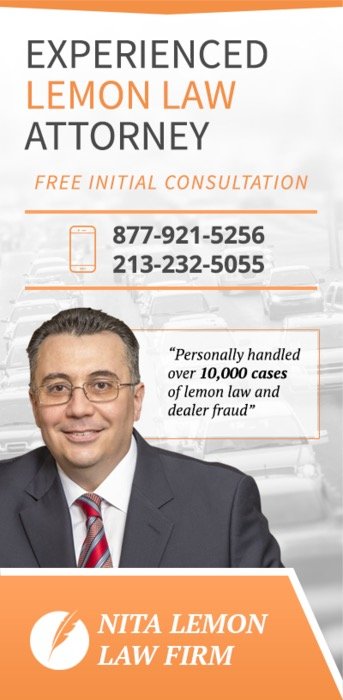Who’s Picking You Up?

Thoughts on rideshare apps, driver safety tips and insurance coverage in an auto accident
Catching a ride somewhere is easier than ever before, thanks to ride-sharing apps and services like Uber and Lyft. Once you have the app on your phone, simply tell the app your destination, and within minutes a car arrives like magic to take you where you want to go. No need to stand on a corner waiting for a cab to arrive and hope one shows up. Plus, you know the total cost of the ride in advance, and that cost is automatically deducted from your account without you having to do anything at all.
What happens, though, if your driver gets into an accident with you in the car, and you are injured in the crash? Do you sue the driver or the ride-sharing company? How do you go about suing the ride-sharing company and getting them to pay for your damages? Should you be intimidated about going up against a nationwide company as opposed to an individual driver and his or her insurance company? Let’s look into some of these questions.
Uber and Lyft drivers may not be the best people to put your trust for safety on the road in
One of the most important aspects of the task of driving is paying attention. Unfortunately, keeping your eyes on the road is becoming increasingly challenging as our attention is drawn to our phones and in-vehicle infotainment systems, whether we are navigating an unfamiliar route, sending or receiving a text, making a call or checking in on social media. The risk of distracted driving car accidents may be especially high for ride-sharing drivers, who may not know their way around town and may be relying heavily on their phone’s navigation to get somewhere they’ve never been before. Remember, ride-sharing drivers are not professional drivers in the sense of cab drivers who have spent years ferrying people around town or bus drivers who follow familiar routes every day.
Also on that note, since ride-sharing drivers may not be professional drivers, many are driving for Uber or Lyft in addition to maintaining a full-time job elsewhere. Whether driving all day long or coming from a full day’s work at another job, there are no time limits on how long an Uber or Lyft driver can stay behind the wheel. Recent studies have shown that driver fatigue and drowsy driving is as dangerous as drunk driving and causes as many accidents and injuries. There are simply no safeguards in place to keep people from driving for Uber or Lyft when they shouldn’t be.
Finally, there are no guarantees that the vehicle being driven is well-maintained or in safe condition. Cab companies have mechanics who regularly perform routine maintenance and repairs, but ride-sharing vehicles are left to the care of their owners, and some may be more diligent and conscientious than others. Likewise, ride-sharing companies do not screen, train or supervise their drivers like professional transportation companies do. What assurance do you have that the driver who picks you up is a careful, competent and attentive driver?
Ride-sharing services must provide hefty liability insurance
Different states put different requirements on drivers to carry minimum amounts of liability insurance to pay for injuries they cause in a car accident. States also tend to place higher requirements on professional transportation companies. Where do ride-sharing services fall? Somewhere in between. Many states have been stepping in and creating insurance requirements specific to drivers for ride-sharing companies. For instance, in New York, a driver who is logged into the app and ready to accept riders must carry liability insurance of at least $50,000 per person and $100,000 per collision. Once a passenger has been picked up, the driver needs to be insured for at least one million dollars for injuries caused to the passenger.
Florida similarly requires a minimum of $50,000 per person and $100,000 per accident when logged into the app, and $1,000,000 when engaged in a ride. Additionally, the driver must be covered by $10,000 in Personal Injury Protection and also carry uninsured/underinsured motorist coverage. These requirements can be met by the driver, the transportation network company (TNC), or a combination of the two. Florida law also prohibits the TNC from using a driver with a conviction in the last five years for DUI, reckless driving, or hit and run, as well as any felony and even some misdemeanor violent crimes or sex offenses. Drivers must be licensed and carry proof of registration, and they may not have over three moving violations within the previous three years. TNCs also cannot use a driver who has been convicted of driving on a suspended or revoked license within the prior three years. Registered sex offenders are prohibited from driving for Uber or Lyft in Florida.
Different states will have different requirements, and different companies may offer different protections for passengers and requirements for their drivers as well. States also differ in how they handle car accidents, such as some states having no-fault insurance laws while other states are strictly tort-based.
So they’ve got insurance. Now what?
All that insurance coverage sounds great if you need it, but actually getting that compensation is rarely a simple matter. Insurance companies always try to pay as little on a claim as they can get away with. This can be even harder when going up against a national company and not just a single driver. The companies behind the ride-sharing apps have their reputation and business model on the line, as well as their obligation to maximize profits for their shareholders. They also have more financial resources to fight your claim than the average negligent driver. Holding a ride-sharing driver accountable and getting all the compensation you deserve may be a bigger hurdle than you know. Hopefully, these rideshare safety tips have shed some light on rideshare accountability. Be sure to get a skilled, knowledgeable and experienced auto accident attorney on your side to handle your case for you. Personal injury attorneys will generally give you a free initial consultation, and if they take your case, you won’t be charged anything up front and only pay their fee from a portion of your recovery if they are successful for you.



